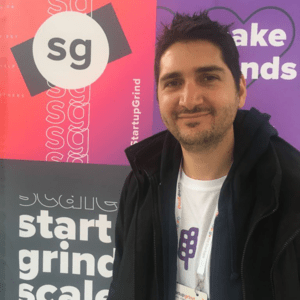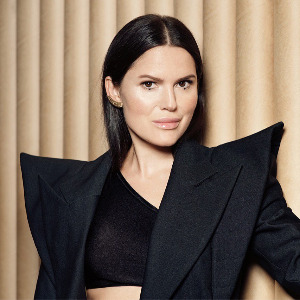I’m a computer engineer transformed into a ⚙️ passionate No Coder ⚙️. Reach out if you want to get introduced or learn more about the No Code world!
Lessons Learned: Guerrilla Customer Research Tactics with Jason Amunwa
Still figuring out what customer research really means? You're not alone!
Customer research can be a bit of a puzzle as it varies between companies, but it remains an interesting and rewarding aspect of the job.
What's even more exciting about it?
It has the potential to increase customer lifetime value and even generate new sales.
In this GrowthMentor Podcast episode, Jason Amunwa, a renowned expert in customer research and experience design, shares his invaluable lessons on guerrilla customer research tactics.
You'll learn:
- The importance of customer research in product management
- How customer research can increase customer lifetime value and drive new sales
- The myths and misconceptions about customer research
- Techniques for implementing guerrilla customer research tactics
- The power of qualitative research and finding golden nuggets of insight
And all these in just 22 minutes.
Transcript
Spyros Tsoukalas: Hello, everyone. Today I’m excited to host Jason Amunwa, in order to discuss Guerilla Customer Research Tactics. Jason is an experienced product manager who has led teams across various SaaS businesses. From small startup teams to large enterprises across different industries. Jason, welcome to the GrowthMentor Podcast.
Jason Amunwa: Thank you Spyros, hi, everyone, nice to meet you.
Spyros Tsoukalas: Jason could you tell us something we don’t know about customer research?
Jason Amunwa: Yeah, absolutely. A few things, actually. So one, you know, I’ve been in product management, I think for about 12 years now. In a bunch of different scenarios, and customer research has consistently been one of the most interesting and rewarding parts of product management, product management is a very wide type of discipline. I think we’re all still trying to figure out exactly what it is and what it means it changes based from company to company. But it’s one of the most interesting and rewarding parts of the job. I think something that a lot of folks don’t know about customer research is that it can actually help increase your customer’s lifetime value. And occasionally, you can actually drive new sales as well. And I’ll talk about that in a little bit. But that was some of the most surprising things about customer research for me.
Spyros Tsoukalas: Let’s elaborate on the topic would you like to bust some myths around customer research?
Jason Amunwa: Definitely. I love busting myths. I think one of the main myths about customer research is that they’re always telling the truth. That’s not true. People lie. But I don’t think that they intend to, they don’t think they mean to, a lot of the time, you ask them questions. And what they end up doing is they project almost like an idealized version of themselves into the future and tell you things that idealized version of themselves would do. But when they actually come to that, that situation, they don’t act the way that they’ve told you. I think it leads to this kind of misconception about customer research that if you just build what they asked you for, like if you say, hey, what features do you want, and they say I want you know, an activity feed, I want rating system, I want the ability to follow different profiles. There’s a fallacy that the customer is always right that if you build those features that they asked you for that they will then buy your product in droves, and then you ride the rocket ship to a $100 trillion valuation. That it’s a fallacy. That’s not usually how it works out. I think another myth about customer research is that it always takes a long time that you have to take six months, and you have to talk to hundreds and hundreds of people in order to figure out, what direction to go. I think those are also myths about customer research, it can be very cheap, and it can be pretty quick. And oftentimes, you know, when you’re talking about qualitative customer research, just talking to one or two engaged people can give you that golden nugget of insight about your product that really changes the direction of your entire business.
Spyros Tsoukalas: Thanks. That was very, very interesting. So, why is customer research indispensable for anyone building a product?
Jason Amunwa: It’s because data lies too. As a product manager, you’re often kind of like a detective, trying to figure out who done it, you know, like who murdered this person. And you have to interview lots of people, and then also look at the evidence as well. And the truth lies somewhere between data and customer feedback. So yeah, people lie. But data lies too. But the truth lies somewhere in the middle in that Venn diagram, you hear a lot of people saying boasting about, you know, we’re data-driven. We are a data-driven startup, we are a data-driven product. Data is not real life, it’s just a representation of life. I think there was a great saying by the philosopher Alan Watts, that the menu is not the meal, you know, what you see on the menu isn’t the actual meal that you eat, you have to recognize that the data that you’re looking at is just a representation of activity in your product. But so is the feedback that you’re getting from customers. So, customer research is indispensable, because you need the other side of the story, because the truth lies somewhere between the data and what people are telling you. I often tell my clients that when they say, Hey, we got the data, we know exactly what’s happening. I tell them, Well, that’s great, but data is kind of like a wind sock at an airport. You know, those orange and white socks that kind of blow it just tells you which way the wind is blowing. It doesn’t tell you exactly how to land the plane. So, you need both the expertise of flying the plane as well as knowing which way the wind is blowing in order to get the plane safely on the ground.
Spyros Tsoukalas: That was a very interesting angle, actually. It’s the first time I listened to it, and I love it. How can you execute customer research?
Jason Amunwa: Um, well, actually this one sorry, there’s one more thing real quick, I’d like to say that it’s indispensable for customer research. It’s that you’ve got to realize that customers are experts, a lot of times I see a lot of product managers go into customer research, thinking that, you know, this customer doesn’t know what they want, we got to figure everything out for them. Customers are experts, they’re experts in their own problems, you’re not an expert in their problem, they’re the ones living the problem. So, it’s only you who are the expert in building the solution for the software. So it’s, you need both experts, you need the expert in the problem and the expert in the solution in order to build something that matches up with reality if that makes sense. So our powers combined type of situation. So yeah, I just wanted to tack that on. But how to do customer research cheaply? First of all, do it yourself. And oftentimes, I find, you know, relying on warm intros from people that you know, already, to people that have the problem that kind of cuts down on a lot of the cold outreach, or hey, win a $25 Amazon gift card, like having to pay for incentives to get people to talk to you. You can often avoid that by just going through warm intros, like, looking at your own network, who do you know, that experiences this problem, first of all, and is in your target market? And ask them to recommend other people to you. That’s one of the key questions that you know, I’ll touch on the kind of in a little bit in this interview, but having them refer you opens doors, and people are a lot more receptive to people who know people that they know if that makes sense. Another, this might sound like a duh, obvious type of answer, but talk to the people who are personally experiencing the problem that your product solves. The reason is that you often don’t have to incentivize those people to talk to you, you don’t have to give them that Amazon gift card or enter them into a raffle to win a prize or whatever and spend money recruited. When those people have personally experienced the problem, I’ve found that you know, 9 times out of 10, they’re super excited to talk to you because they’re like, Oh, my God, somebody’s finally solving this problem. Yes, yes, I will talk to you, I want to discuss, you know, how it affects me what I think the products could do, or you know what the opportunity is to solve this problem. As I said, they’re the experts on the problem. And they’re excited to talk to somebody who’s working on a solution.
Spyros Tsoukalas: this isn’t new to me. But like, I agree that that’s a very efficient way to because, you know, people know, people that face similar problems most times, right? So what are the most critical questions, according to your experience, that people should be asking or not asking? Like, if we reverse the question?
Jason Amunwa: Yeah, definitely. I think, you know, there are examples in both categories, the ones that you should ask really ask, and some that you really shouldn’t. I think I’ll start with the ones that you shouldn’t. Don’t ask, hey, what features should we build? Or at least if you do ask that, don’t necessarily listen to it so closely. The reason is that as I said, you know, customers are the experts in the problem, not the solution. I think, you know, there’s the famous example of Steve Jobs, saying, you know, if we ask people, what they wanted, they would have told you, you know, a bigger Blackberry, right, they wouldn’t have said, you need to build the iPhone, with the touchscreen, and all that stuff. So, but they would have told you, hey, I have all of these devices. And all of these internet applications that I’m using regularly, I wish there was some way to kind of combine them all into one. So that’s one question that I you know, I tend to avoid asking folks, I always ask them, you know, if they have ideas they want to share, you know, that people love sharing ideas, but don’t necessarily copy and paste that into your roadmap. Another question that I think, is a pair of questions that I think you should not really ask is, how much would you pay for this? And will you buy this? Because those are lies. The answers that you get to those are typically lies. For the reason that I mentioned, you know, people are just not good at predicting their own future behavior. And I’ve personally made the terrible mistake of listening too closely to the answers to those questions. How much would you pay? And will you buy this? And I was dead wrong, they were dead wrong. It just did not line up with reality. I’d say the most critical questions you should ask in a customer research interview. First of all, then you should ask this several times why, you know, you ask them a question. They give you an answer but ask them why, like, scratch it, like dig into it a little bit deeper, to really understand the context and the intent behind their answer, because a lot of the time you can listen to just the surface level answer and miss something completely as to the motivation behind it. Another one that I always ask is, hey, what’s the biggest headache in your job? How do people love to talk about their problems? As I said, they’re experts in their own problems. So, have them really pinpoint, like, what’s the biggest pain point in their daily day-to-day life. Because if your product is solving some of that, then there’s inherent value in your product to them. And there’s a higher likelihood that they’ll engage with it, you know, the better you solve that headache for them, the more value they will perceive in your product. Something else that I always ask a couple more, a couple more questions, something that I asked that I always ask in the customer research interviews I do is, and this is kind of a weird question. But I tell them to imagine that they go to bed tonight. And then they wake up tomorrow morning, and they’ve been blessed with some kind of magical superpower to solve a problem in their industry or in their role. And it’s kind of funny, you get people you know, I’ve worked in a bunch of different industries like healthcare and insurance tech, HR tech, it’s funny to kind of get people to say, in insurance, imagining and talking about superpowers, it really kind of breaks them out of autopilot. And they really start thinking about it. And it’s always interesting to me, because products, when you think about technology give us superpowers, because, you know, we were able to do things that a human by themselves is not able to do technology is the superpower, right? So, when we have people think about God, what powers would I want that kind of paints for you the goal that you’re going for, because you want you know, if you have a skill, you’ve got a skill, you might be proud of it. But if you have a superpower, you want to brag about it to everybody, you want to tell everybody Hey, I am 10 times better than an average human at doing this thing because I have the superpower. And that’s where the product starts to turn into kind of its own kind of marketing. This was actually I didn’t come up with this. This is something that Kathy Sierra wrote about in a book called Badass when you make a product that enables people to be badasses, it starts to market itself. So ask people, hey, what magical superpower do you wish that you had in your role? It gives you that target to shoot for like the technology should enable people to feel that badass in their own role, whether it’s an Excel spreadsheet, like you know, putting a spreadsheet together faster, or filing your taxes faster, or whatever, if you can do it 10 times faster and better than anybody else, you’re gonna brag about it. That’s human nature. So asking people or asking your interviewees to paint that target for you, really gives you something powerful to strive for with your roadmap. And then the one other critical question, I know I’m dropping a bunch, but who else should I talk to about this? At the end of every customer research interview, I always ask, thank you so much for the time. You know, who else should I be asking these questions to? Because the chances are that people who have problems know other people with the same problems, there’s the old saying that misery loves company, right? So, that’s how you kind of get those warm intros, because they’ll either introduce you to the next person to talk to, or you get permission, but you can say, hey Foti, Spyro recommended that I talk to you about this because I’m trying to solve this problem, would you have 20 to 30 minutes to talk. And it really, I’ve found that that really helps open doors and get a lot more response to your outreach when you’re trying to kind of get these interviews scheduled.
Spyros Tsoukalas: We’re almost done for the day, but how do they show insights from all these materials interviews, and data that people collect?
Jason Amunwa: Absolutely. Well, I think, you know, tactical techniques. So, one is that I always try and record the call. I always, you know, depending on the law, where you’re based in where your interviewees are based, you kind of have to disclose you know, I was doing a lot of these in California where you have to disclose to a person if you’re recording the call. So the front of the call, I would always ask them Hey, do you mind if I record this video is better if they’re not comfortable being on video than audio, but always try and record the call so you can pay attention to what they’re saying. When you’re typing notes. It’s easy to miss, miss the things that folks are saying or you know, the tone or they make a facial expression. All of these things are important bits of feedback to receive when you ask a question. So, if you know recorded many of the calls you can. Make sure that you ask to set the same questions for each interviewee or similar questions so that you can compare them apples to apples. Also, take notes if you can, but you know, for the most part, pay attention to the call itself. And then the way I typically approach pulling insights out of it is I rewatch all the recordings. Usually, I do it at you know, one and a half 1.5 or two times speed to kind of cut down on the amount of time spent. All I’m doing is I’m looking for common phrases, common problems, common scenarios, and common superpowers of which desires the interviewees have, and then restarting to kind of take note of which ones are the most common things that occur across all of the interviews. Honestly, I mean, for most of the customer research efforts that I’ve done, I have done research efforts across 1000s of people. But when it comes to this kind of like one on one interview type format, you can start to yield really, really useful insights out of maybe 10 to 15 interviews, if you get a group of 10 or 15 people who have the same traits, and you ask them the same questions, and the same phrase keeps coming up, you can usually extrapolate that insight to a broader audience of you know, hundreds or 1000s of customers. A couple of quick tricks that I use. One is for the recording of the videos, I either use, or record it off Zoom, and then I get the video recording and I upload it to YouTube, just a private, private playlist. And then I chat arise the videos based on what time did I ask each question in my script? So that way, when you’re jumping around from one interview to another, you can quickly find a link to or you can share a link to the answer to a specific question in the video, you’re not kind of like searching around in it, I think both Loom and YouTube support timestamps in the video. So that’s, that’s been super helpful to me just to be able to say, Hey, look at what this lodge customer says about the problem at this time too and then contrast it with what this like small business owner says about the same problem or answers the same question at this time in the video. And the reason one of the reasons why it’s so useful to be able to link straight to those time codes is because when you’re sharing your insights with your audience, let’s say you’re presenting customer research findings to your executive team, you should show them the clips. But don’t just show them a graph of hey, the X many people said this why many people said this, like actually interrupting your presentation and show them an edited clip of the customer saying the thing. I’ve had a lot of experience with that being a really powerful way of just kind of getting it through to the leadership team. Hey, this is what people are saying. Your assumption on this is not necessarily correct. Look at what these three people who are directly in our customer, target. Our target customer base said this. And you know, I’ve experienced it a few times where a CEO has been 185% sure that they need to build this next feature. And I’m like, Look what these people said when I described the feature as you envision it to them. And they’re like, oh, no, I don’t want that at all. That doesn’t solve the problem. The problem lies over here. And it saved a few companies a lot of money, and a lot of time and effort that would have been spent building something that people don’t want.
Spyros Tsoukalas: Are there any other tools you recommend for such a process?
Jason Amunwa: Yeah, absolutely. And I’m sure that there are, you know, large-scale tools that encompass all of these elements. But for me, I kind of have to give my own little tool belt for running these types of research efforts. And first of all, Calendly is indispensable for just managing all of the schedules. I think you’re most of the folks listening will know Calendly for managing your personal calendar. But it removes so much of the friction from the process of scheduling with somebody who says, Yes, I want to talk to you. You just say send them a link and say, Hey, pick a time that works best for you. As opposed to you know, six emails back and forth. Well, there’s Wednesday work. Yeah, well, Wednesday works up to 1 pm. Way to you and Mountain time. No, I’m on, you know, London time, like, just use Calendly. It just saves you a lot of effort. And the same with templated emails, I usually send a templated email and I customize it a little bit for each person put their name in their company name, maybe a little bit about their background that kind of makes it more relevant to them. And there are lots of sales enablement tools that do this kind of like you know, templating is one built into Gmail if you use Google, Google for business, Mailshake, and Mixmax I think both are kind of templated email tools. If you’re doing kind of a broader outreach. I usually use Zoom or Google Meet, just whichever video calling tool you’re you’re comfortable with. And I use Notion for managing the contacts database. So, usually, I’ll kind of have a list of names, email addresses, and phone numbers, depending on how I’m reaching out to them, and then just track the status. So, you know, have you said something to them? Have they responded? Yes or no? Have you followed up with them? If they haven’t responded? Have they scheduled something? And then have you completed the interview? It just helps with kind of filtering Notion was really good with, you know, when you build a database, helping you filter through all of that information to find the people like, who should I be following up with, you know, how’s my conversion rate? I think my benchmark usually is about a 30% response rate when I’m reaching out to people. And again, I don’t know how good that is, in terms of how other people do but you know, from an email marketing background, a 30% response rate, I’m like, Okay, that’s pretty good. I think this system seems to work. And that’s the power of warm intros when you drop someone’s name that someone else knows or they introduce you via email, it opens those doors. And then other a few other tools kind of honorable mentions. Canny is great canny.io C A N N Y .io it’s kind of like Reddit for feature requests, so your customers can post ideas of feature requests in the forum, and then other people can comment on it and vote it up or vote it down. Canny is great for identifying some of the most engaged people to talk to among your existing customer base. If you make it public, then you know, you open it up to anybody that has that problem. And you can find the people who are suggesting the best ideas or people that are voting up ideas, the most consistently. That’s those are great opportunities to reach out to them and say, Hey, I’d love to talk to you about this problem, would you be interested in chatting Infragram is on the app. And another one that I’ve really enjoyed using just lets you drag and drop together data, basic data visualizations. So, when you’re building your slides, kind of presenting your findings to that executive team, you can use them for granted just quickly put them together like a nice looking chart. That kind of breaks down okay, you know, 30% of respondents said this 20% said this, and the rest said go away or whatever. That’s how I kind of run my customer research, the Guerrilla Customer Research. There are other tools that enable you to kind of really scale up the analysis of the qualitative feedback that you get. I’ve used EnjoyHQ before, it’s pretty good. I think they just got acquired. And then Dovetail is a similar tool as well. It just lets you kind of like tag, different bits of feedback so that you can then slice and dice it and analyze it on those tools as well.
Spyros Tsoukalas: Jason, thanks for being so transparent and sharing all these insights with
Jason Amunwa: Absolutely.
Spyros Tsoukalas: I hope that people listening to this episode will learn as many new things as I just did.
Jason Amunwa: Yeah, me too. I hope that’s educational. And yeah, I’m here if anybody has any questions, I’m happy to talk about this topic.
Spyros Tsoukalas: Thanks a ton.
Jason Amunwa: All right. Thanks very much.
In this episode


I’m an experienced B2C & B2B SaaS product leader; with 10 product launches, 3 acquisitions, and 13 years of marketing under my belt. I specialize in analytics, UX, product strategy, & helping you find quick, easy growth opportunities for your business.
Join the community
Enjoy the peace of mind that advice is always only one Zoom call away.


